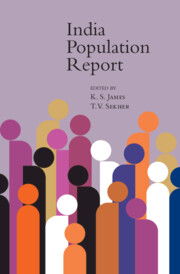10 - Sustainable Development Goal Indicators on Maternal Health and Socio-Economic Inequalities in India
Published online by Cambridge University Press: 15 August 2023
Summary
Introduction
Maternal health status is an essential constituent for developing any nation's equitable distribution of resources and poverty reduction. The survival and well-being of mothers are not only important in their own right but are also central to overcoming broader economic, social, and developmental challenges. India has witnessed an enormous improvement in most maternal and child health indicators over the last two decades. Particularly between 1992 and 2016, there has been a substantial improvement in most maternal health indicators that affect the health and well-being of women and their children. During that period, the Government of India launched several maternal and child health programmes such as the Reproductive and Child Health (RCH) programmes and Janani Shishu Suraksha Karyakram (JSSK). The most remarkable improvement was evident in one of the key indicators of maternal health, namely ‘institutional delivery’, since 2005–06. This incidentally coincided with the launch of the National Rural Health Mission (NRHM) and numerous other initiatives launched under this flagship scheme, including the Janani Suraksha Yojana (JSY), which resulted in a surge in institutional deliveries. The Government of India further launched the JSSK to benefit pregnant women who deliver their babies in government medical facilities. Notable strategies under the JSSK included promoting critical postnatal care for the newborn and the mother and an early initiation of breastfeeding. Soon after that, the Government of India upgraded the NRHM into an overarching National Health Mission (NHM) with two sub-missions: the NRHM and the National Urban Health Mission (NUHM). The Government of India has also monitored maternal health indicators through the Health Management Information System (HMIS), the National Family Health Surveys (NFHS), the District-Level Household Survey (DLHS), the Annual Health Survey (AHS), and other independent surveys such as the Coverage Evaluation Surveys (CES) by the United Nations Children's Fund (UNICEF). Although the Government of India has put considerable effort into improving maternal health status in India, there is little evidence regarding the significant cofactors that have led to the improvement in maternal healthcare indicators in India between 1992 and 2016.
Data from the Sample Registration System (SRS) show that the maternal mortality ratio in India has gradually declined from 130 per 100,000 live births in 2014–16 to 113 per 100,000 live births in 2016–18 (Registrar General of India [RGI], 2020).
- Type
- Chapter
- Information
- India Population Report , pp. 347 - 388Publisher: Cambridge University PressPrint publication year: 2024



